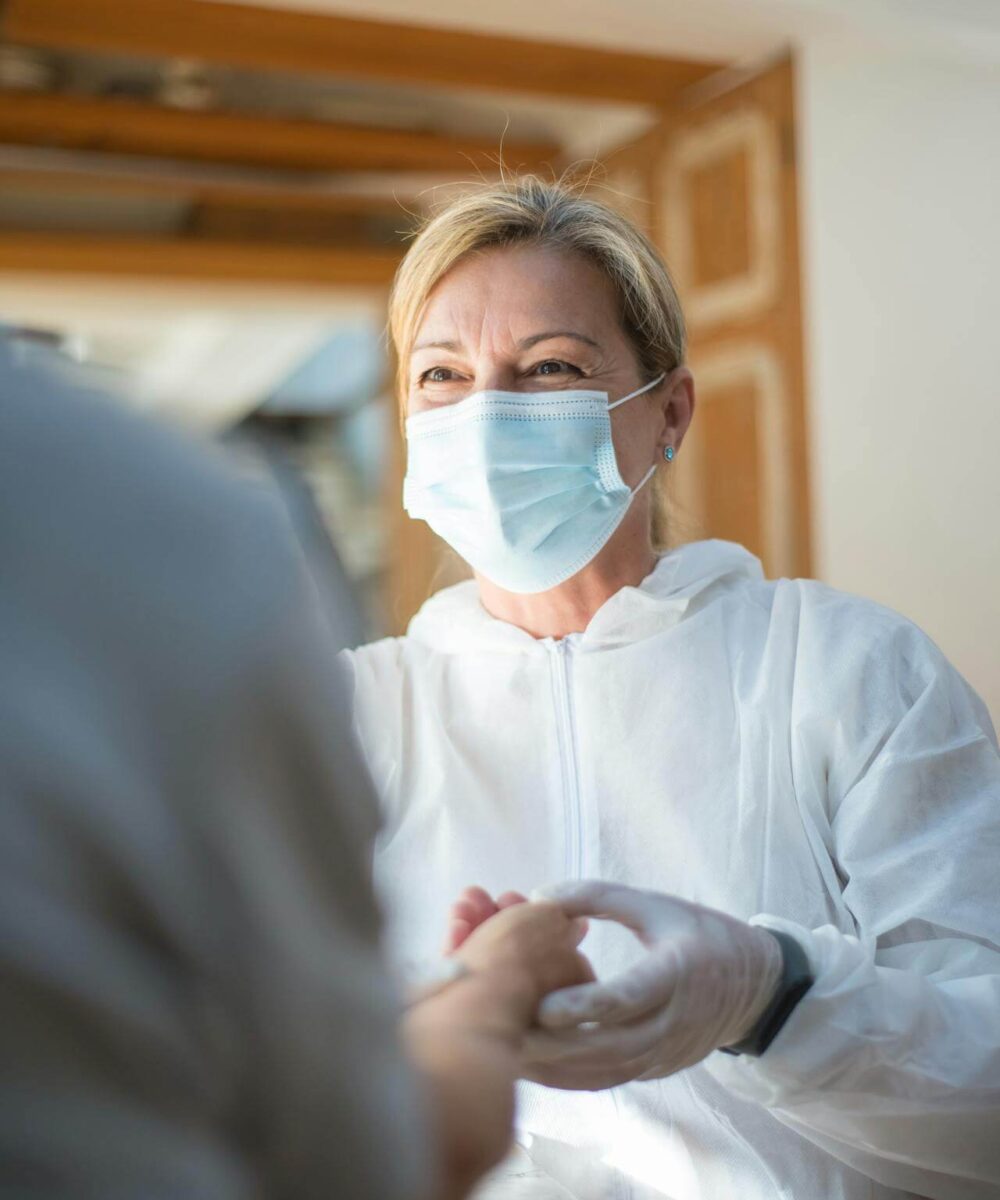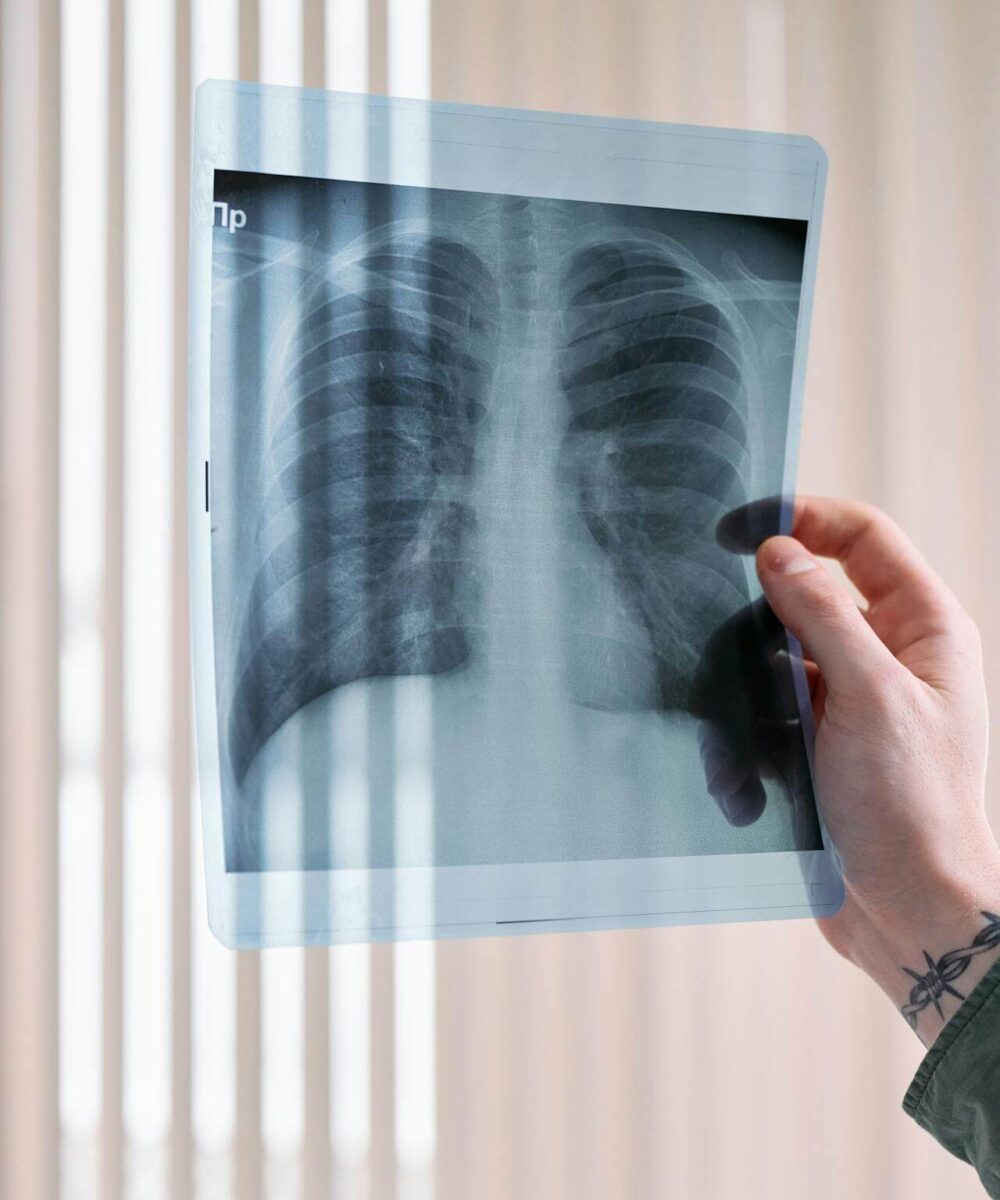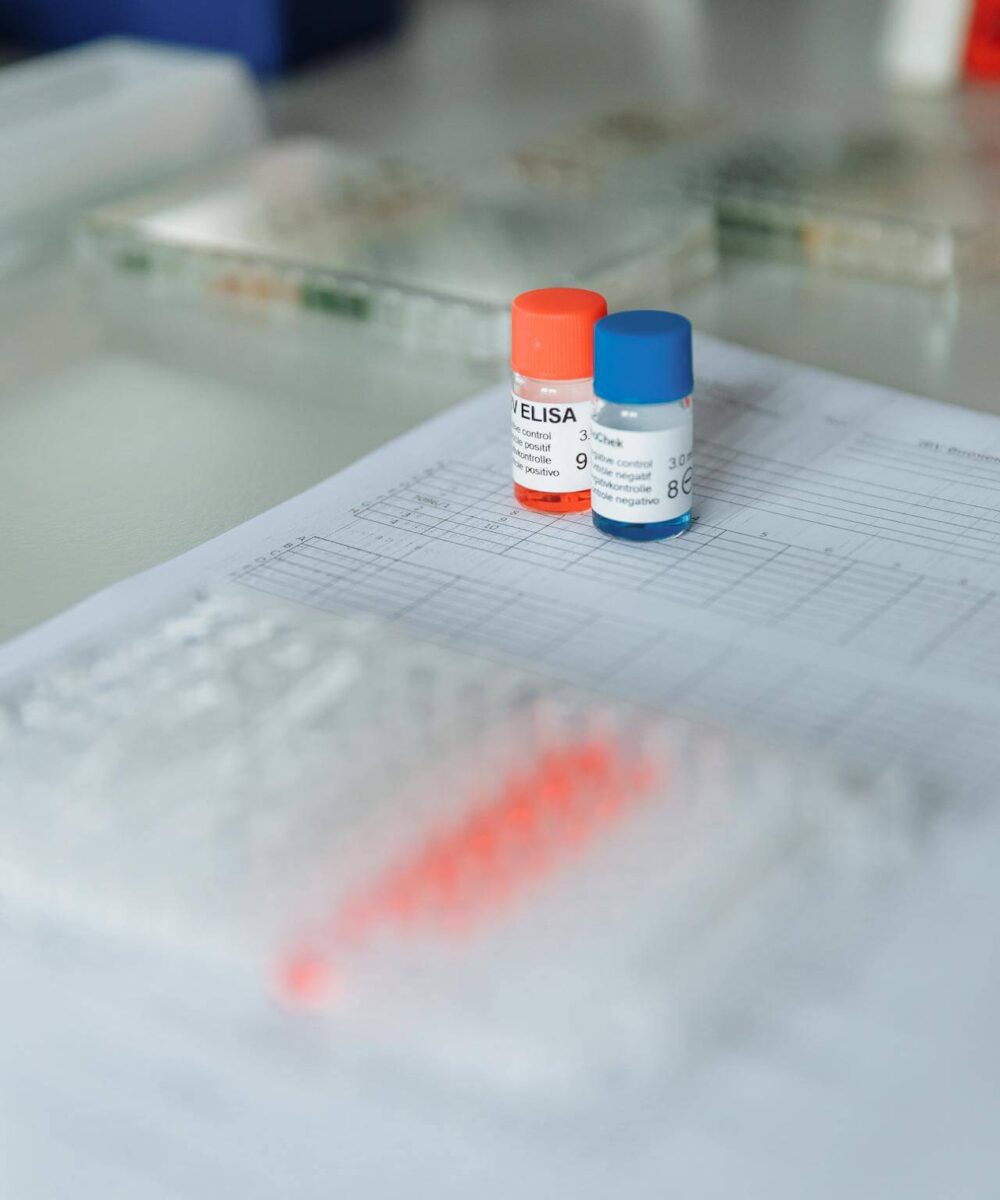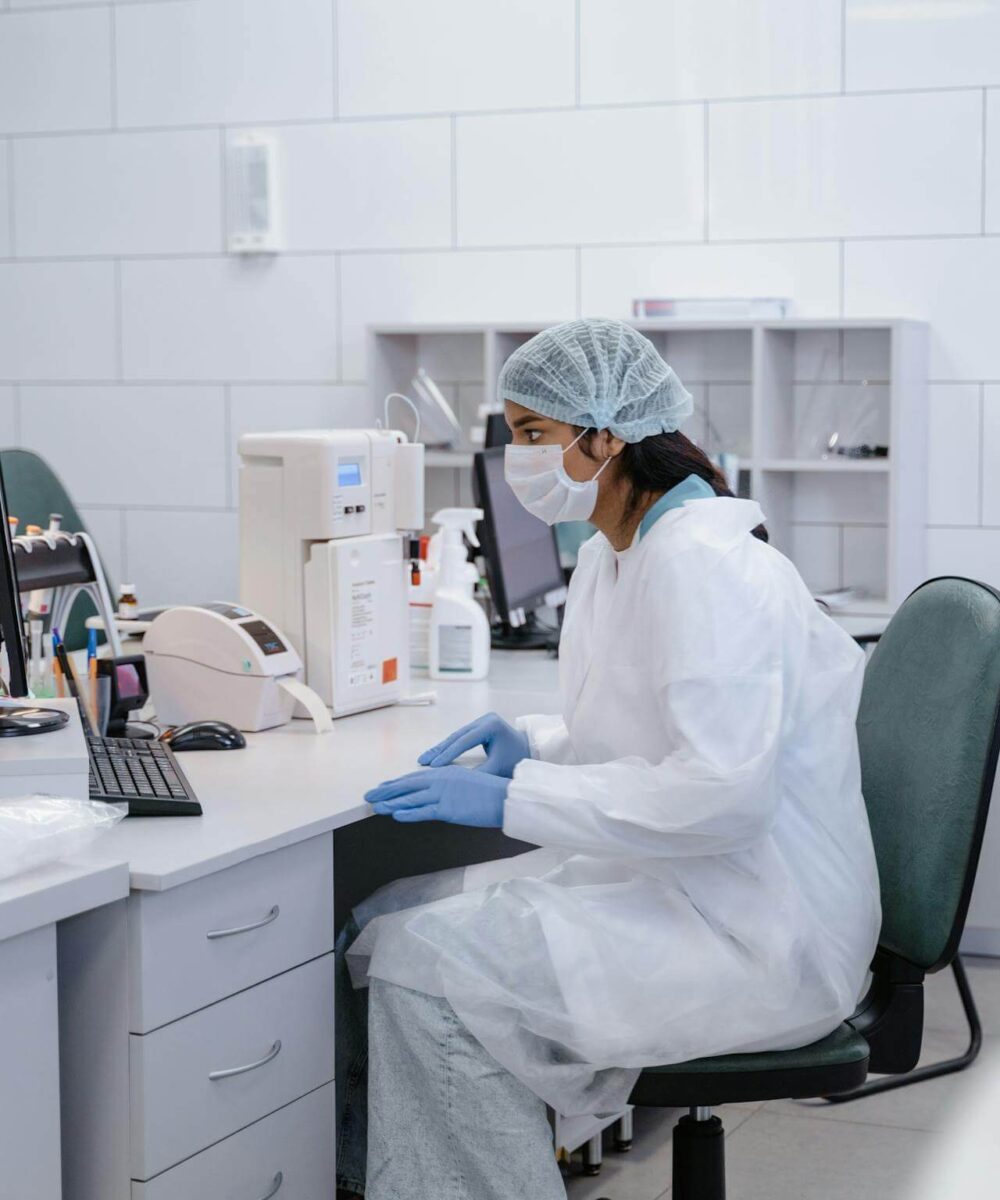Immigration Exams

Complete Physical Examination
Healthcare professionals conduct comprehensive physical examinations for immigrants which include:
- a thorough review of the applicant’s medical history
- Their lifestyle
- And any current health concerns.
During the assessment, they measure the applicant’s blood pressure, heart rate, and temperature, as well as evaluate various body systems. Additionally, the provider may ask for further screenings and tests, which depend on the applicant’s age, gender, and risk factors. By doing this, they can identify potential health issues early, and thus intervene and manage them promptly.
Furthermore, this comprehensive analysis offers the chance to bring the applicant’s health goals to the forefront and receive personalized advice on maintaining a healthy lifestyle. This examination is a form of preventive care that enhances overall well-being and promotes long-term health benefits.

Tuberculosis Screening
Tuberculosis (TB) screening is a critical public health measure aimed at identifying individuals infected with the TB bacteria, particularly in high-risk populations. The screening process typically involves a skin test (Mantoux test) or a blood test (IGRA) to detect latent TB infection. These tests are essential for preventing the spread of TB, which can lead to severe respiratory illness if left untreated. Individuals at higher risk, such as those with weakened immune systems, close contacts of infected persons, or those living in congregate settings, are strongly encouraged to undergo screening. If a positive result is obtained, further evaluation, including a chest X-ray and sputum tests, may be necessary to determine if active TB disease is present. Early detection through TB screening not only aids in timely treatment but also plays a vital role in controlling and reducing the incidence of tuberculosis in the community, ultimately contributing to public health safety.
Tuberculosis Screening
As a public health measure, Tuberculosis (TB) screening aims at identifying individuals infected with the TB bacteria, especially in high-risk populations. The process usually involves a skin test (Mantoux test) or a blood test (IGRA) to detect a latent infection. As a result of testing, the spread of TB and subsequently, severe respiratory illnesses, can be prevented. People with weakened immune systems are at a higher risk of contracting TB, especially if they live in close contact with infected individuals or in congregate settings. If the screening results come back positive, the healthcare provider may request a chest X-ray or sputum tests to determine if the TB is present. By conducting TB screening tests, we are helping a matter of public safety because it allows for the control of the disease.


Vaccination Records Review
For immigrants coming into the country, a vaccination records review is imperative. It is the assessment of an individual’s immunization history in order to ensure they are up to date on required vaccinations. Children, adolescents, and adults alike are asked to undergo this review since certain vaccines are required for school attendance, travel, or employment in specific fields.
During the consultation, healthcare providers revise the applicant’s vaccination records against recommended schedules provided by health authorities. Additionally, they may identify any missed vaccinations or due boosters. The aim is to prevent the resurgence of vaccine-preventable diseases and to ensure that incoming individuals are adequately protected against infections. The process also offers a chance for healthcare providers to educate applicants about the importance of vaccinations, dispel myths, and address any concerns. When vaccination records are kept up to date, individuals can better safeguard their health and that of those around them, contributing to community immunity and overall public health in the U.S.
Update: As of January 22, 2025, USCIS waives any and all requirements that applicants for adjustment of status to that of a lawful permanent resident present documentation on their Form I-693, Report of Immigration Medical Examination and Vaccination Record, that they received the COVID-19 vaccination. USCIS will not issue any Request for Evidence (RFE) or Notice of Intent to Deny (NOID) related to proving a COVID-19 vaccination. USCIS will not deny any adjustment of status application based on the applicant’s failure to present documentation that they received the COVID-19 vaccination.

Laboratory Tests
Laboratory tests are integral components of modern healthcare, providing critical information that aids in diagnosing, monitoring, and managing medical conditions. These tests analyze various samples, including blood, urine, and other bodily fluids, to assess the presence of diseases, organ function, and overall health status. A wide range of laboratory tests can be performed, such as complete blood counts, metabolic panels, and specific disease markers. The results of these tests help healthcare providers make informed decisions regarding treatment plans and interventions. Timely and accurate laboratory testing is essential for effective medical care, as it allows for early detection of health issues, guiding appropriate action. Furthermore, laboratory tests contribute to preventive care by establishing baseline health metrics that can be monitored over time. Ultimately, these tests enhance patient outcomes by enabling healthcare professionals to deliver personalized, evidence-based care tailored to individual needs
Lab Tests
Lab tests offer crucial information used for diagnosing, monitoring, and managing medical conditions. Blood, urine, and other bodily fluids are analyzed to assess the presence of diseases, organ function, and overall health status. Laboratory tests can offer information such as:
- Complete blood count
- Metabolic panels
- And specific disease markers
Healthcare providers design plans and interventions based on the results of the lab tests. When timely and accurate laboratory testing is performed, it allows for the early detection of health issues, which enables appropriate action. Ultimately, these tests enhance applicant outcomes by enabling healthcare professionals to deliver personalized, evidence-based care tailored to individual needs


Medical History Assessment
Form I-693 requires that the civil surgeon perform a medical history assessment. Through this analysis, they can gather comprehensive information about an individual’s past and current health status. By collecting information regarding previous illnesses, surgeries, medications, allergies, and family health history they can understand the applicant’s medical background. As a result, they can identify risk factors, guide diagnosis, and inform treatment decisions. It helps determine whether an applicant has any health conditions that could pose a public health risk, require extensive medical care, or impact their ability to work and integrate into society.
It is important that applicants know that they should disclose:
Past and current illnesses (e.g., tuberculosis, heart disease, diabetes).
- Previous hospitalizations or surgeries.
- Mental health conditions (e.g., schizophrenia, bipolar disorder).
- History of drug or alcohol abuse.
- Any physical or developmental disabilities.

Immunization Records Review and Update
Immunization records review and update is a critical process in maintaining an individual’s vaccination history and ensuring compliance with recommended immunization schedules. This review typically involves examining existing records to confirm that all vaccinations are current and to identify any missed doses or upcoming boosters. Healthcare providers play a key role in this process by educating patients about the importance of staying up to date with immunizations, particularly for vaccines that prevent serious diseases. During the review, patients may be encouraged to complete any outstanding vaccinations, which is especially important for children, adolescents, and adults in specific high-risk groups. By keeping immunization records accurate and up to date, healthcare providers can help safeguard individuals and communities from vaccine-preventable diseases. This proactive approach not only protects the health of individuals but also contributes to herd immunity, ultimately enhancing public health and safety.
Immunization Records Review and Update
Proof of vaccination is required by the Centers for Disease Control and Prevention (CDC) to prevent the spread of vaccine-preventable diseases in the country.
The following vaccines are mandatory based on the applicant’s age and medical history:
During the review, the civil surgeon may encourage applicants to complete any outstanding vaccinations. The civil surgeon records all vaccinations on Form I-693.


Health Clearance Certificates
Whereas form I-693 is the main medical document for U.S. immigration, in some cases, a health clearance certificate may be requested.
This is the case for applicants with:
- TB history. A certificate may be requested to state that the applicant is not contagious.
- Mental health conditions. If you have had a history of disorders involving harmful behavior, you may need clearance from a licensed psychiatrist.
- Drug or alcohol dependency. Like mental health conditions, you might need proof of rehabilitation if you have a history of substance abuse.
- Previous medical inadmissibility. If you have previously been denied entry on the grounds of a medical condition, you will need a certificate that proves successful treatment.
